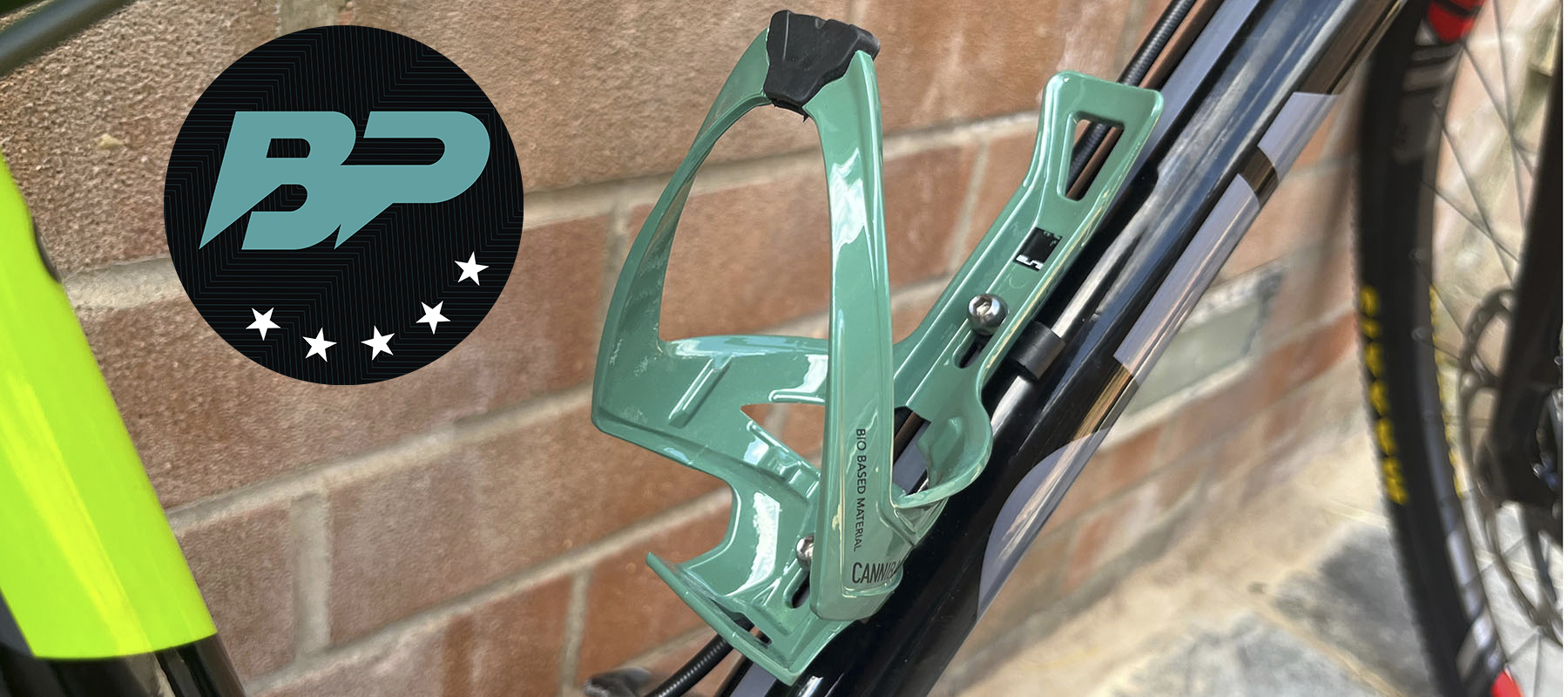Bike Perfect Verdict
Solid, dependable cage with extra bottle grip compared to standard road-orientated cages. The innovative use of greener technologies at a minimal cost increase is also to be applauded.
Pros
- +
It uses innovative, eco-friendly castor oil biotech material
- +
Fiber-reinforced for extra strength
- +
Lightweight
- +
More secure than traditional road options
- +
There is very little difference in price from the standard version
Cons
- -
Limited color options
Why trust BikePerfect
The guys at Elite have been producing some of the best water bottles (or bidons for the road riders out there), bottle cages, and turbo trainers from their North Italian base for over 40 years. Their offering of gravel and MTB products has been steadily growing, and the Cannibal XC Bio-Based is the latest product in the range.
The latest release of bottles and cages has an eco-friendly theme with new procedures that use bio-based renewable products or recycled plastics from textile industries to help lower their carbon footprint and reduce their use of fossil fuel-based plastics. The Cannibal cage uses the former, made using an innovative plastic derived from castor beans instead of traditional oil-based methods.
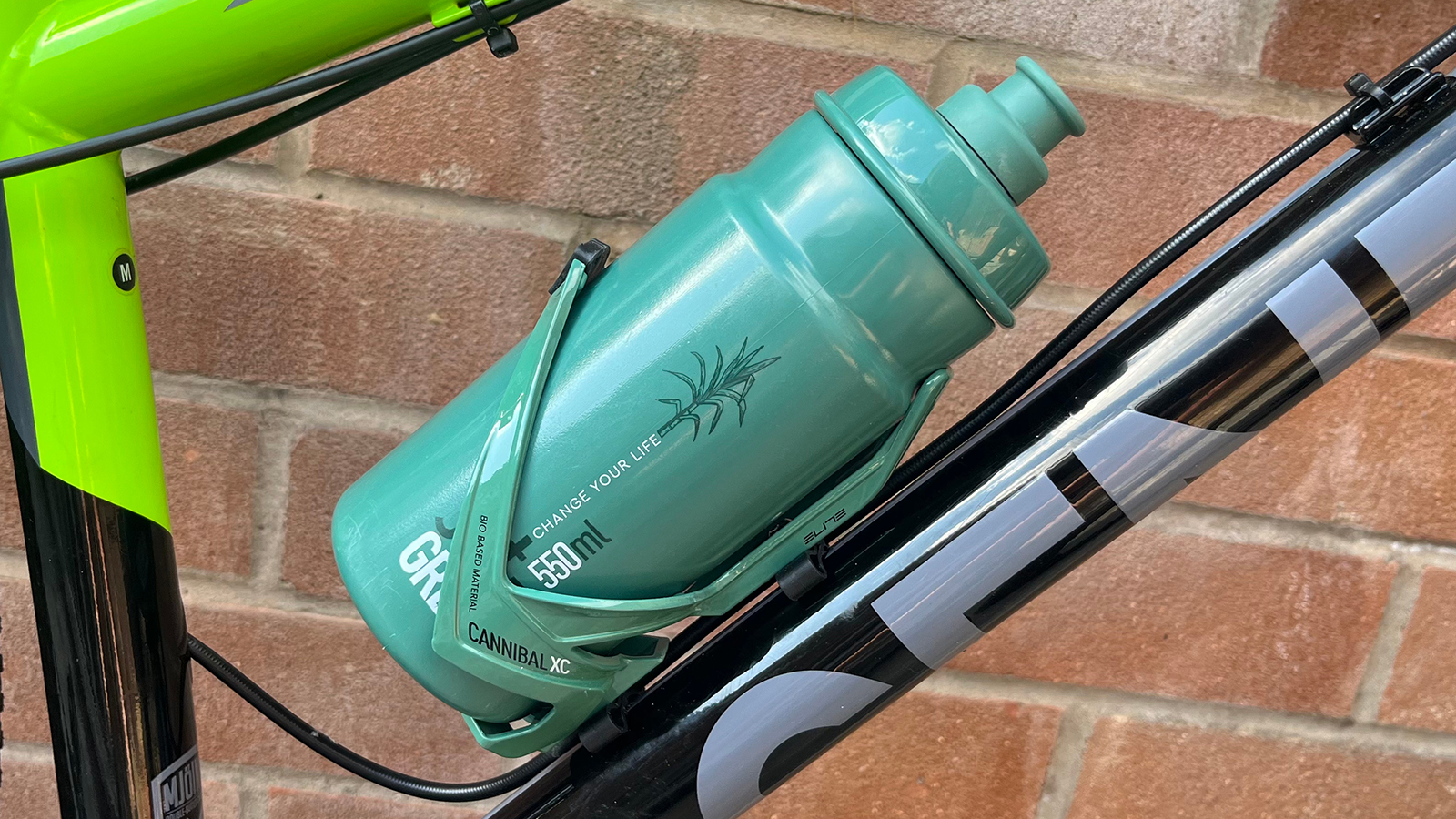
Design and specifications
The Cannibal cage has a similar silhouette to Elite's road offerings, with an angled band curving over the bottle to keep it in place. This shape gives better coverage of the bottle than a standard old-fashioned metal cage and also gives a wide window for bottle entry from either side, which is handy on a gravel bike with frame bags fitted or a full suspension frame with limited space in the front triangle.
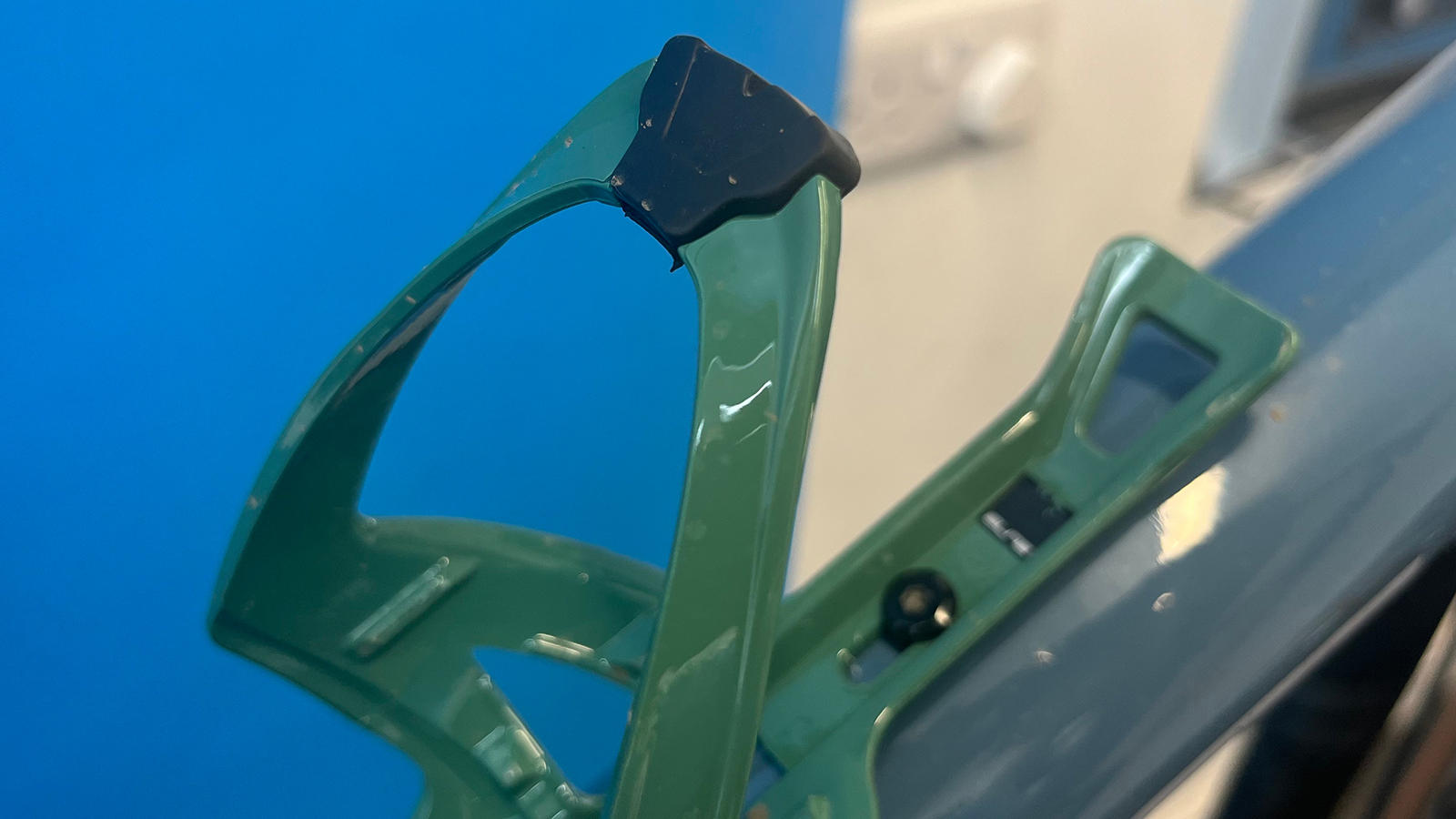
The band has a piece of elastomer in the middle section, which gives the cage a bit of flex to accommodate variances in bottle size, as well as providing more grip and some vibration damping. I must admit the word elastomer brings back memories of terrible early mountain bike suspension, but for cases like this, it works very well.
As well as the clever use of bio-based plastic, which makes up 40 percent of the materials, it uses fiberglass to reinforce the cage to deal with the extra vibrations and stresses riding off-road brings. There is also some more aggressive internal profiling, with ridges and raised sections to aid further bottle retention. It comes in at a feathery 34g, which is very light for a robust non-carbon cage.
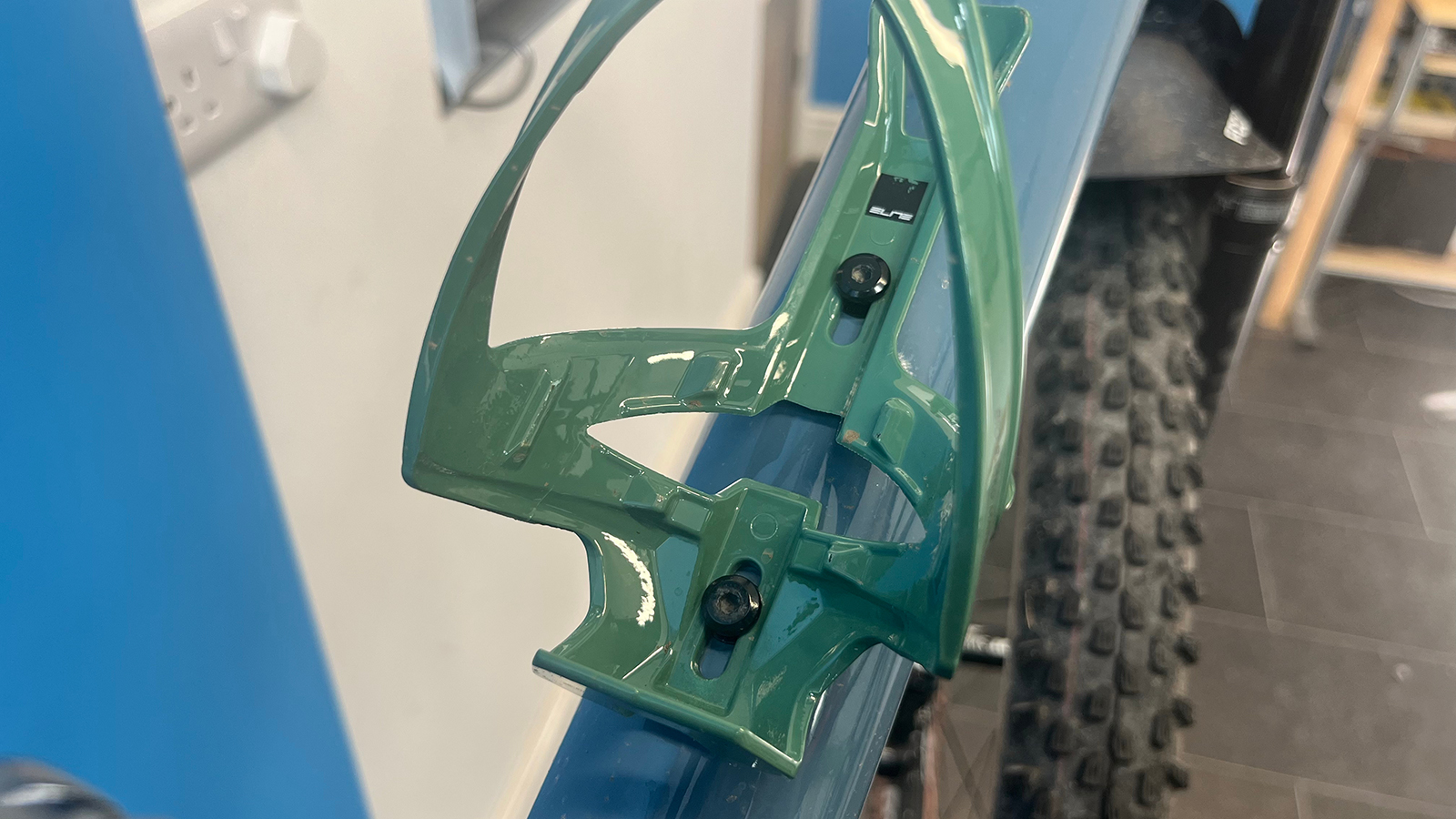
Performance
Fitting was straightforward – simply unscrew the M5 bolts on the frame and screw the cage back in its place. These holes on your frame are meant to be 64mm apart, but should yours be slightly out of tolerance, the Cannibal has slotted mounted points, giving you a bit more margin for error and making fitting easier. The slots also mean you can fit the cage marginally higher or lower, which is helpful if you have something like a shock linkage or small frame that impedes bottle entry.
A top tip for fitting cages is to use a small ratchet like the Topeak Ratchet Rocket Lite or Wera mini ratchet. With a short handle and ratchet mechanism, it makes short work of tightening up the bolts in a restricted space. Avoid a ball-ended Allen key if you can, as frame bolts are often alloy and very easy to round out if you are not careful.
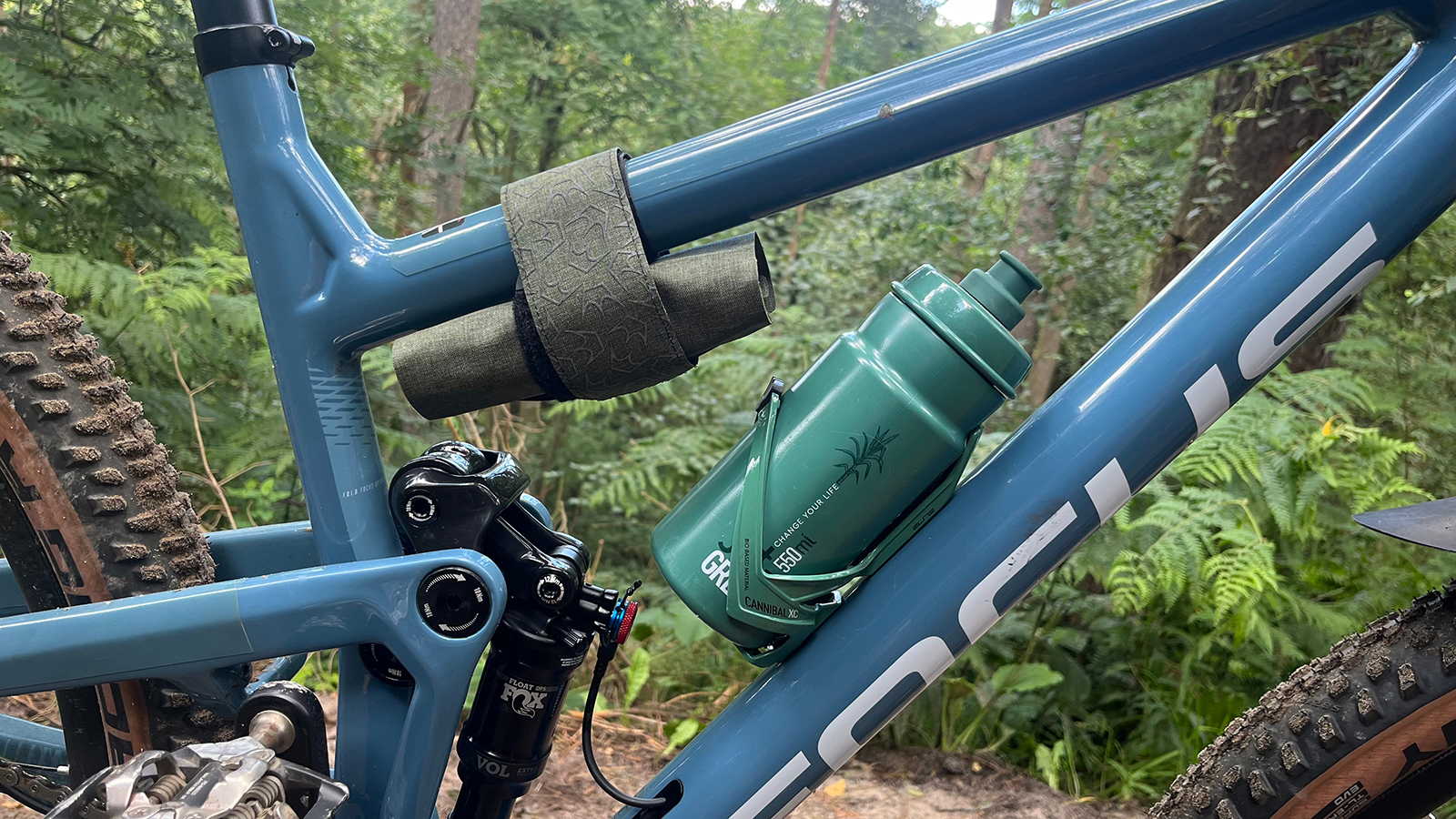
I used the cage on various full suspension, hardtail, and gravel bikes, and during testing, it did an admirable job of keeping my bottle in place. I mainly used it with the matching Elite Jet Green bottle, which is made using the same castor oil-based bioplastic as the cage, but I also used various Elite Fly in 550, 750, and even the huge 950ml version, and Tacx bottles throughout testing and never dropped a bottle or had one come loose regardless of terrain.
Over several months of riding, there are very few signs of wear, which is quite surprising. The local gritty Peak District mud is a perfect grinding paste and usually makes short work of gloss-finished plastics, but not so here. The bottle sits against the ridges in the cage, not the larger smooth areas, which is one of the big reasons for this, I think.
The cage only comes in one color currently, which may be an issue to some, but I liked the earthy green tone used, and it should work well with most color schemes.
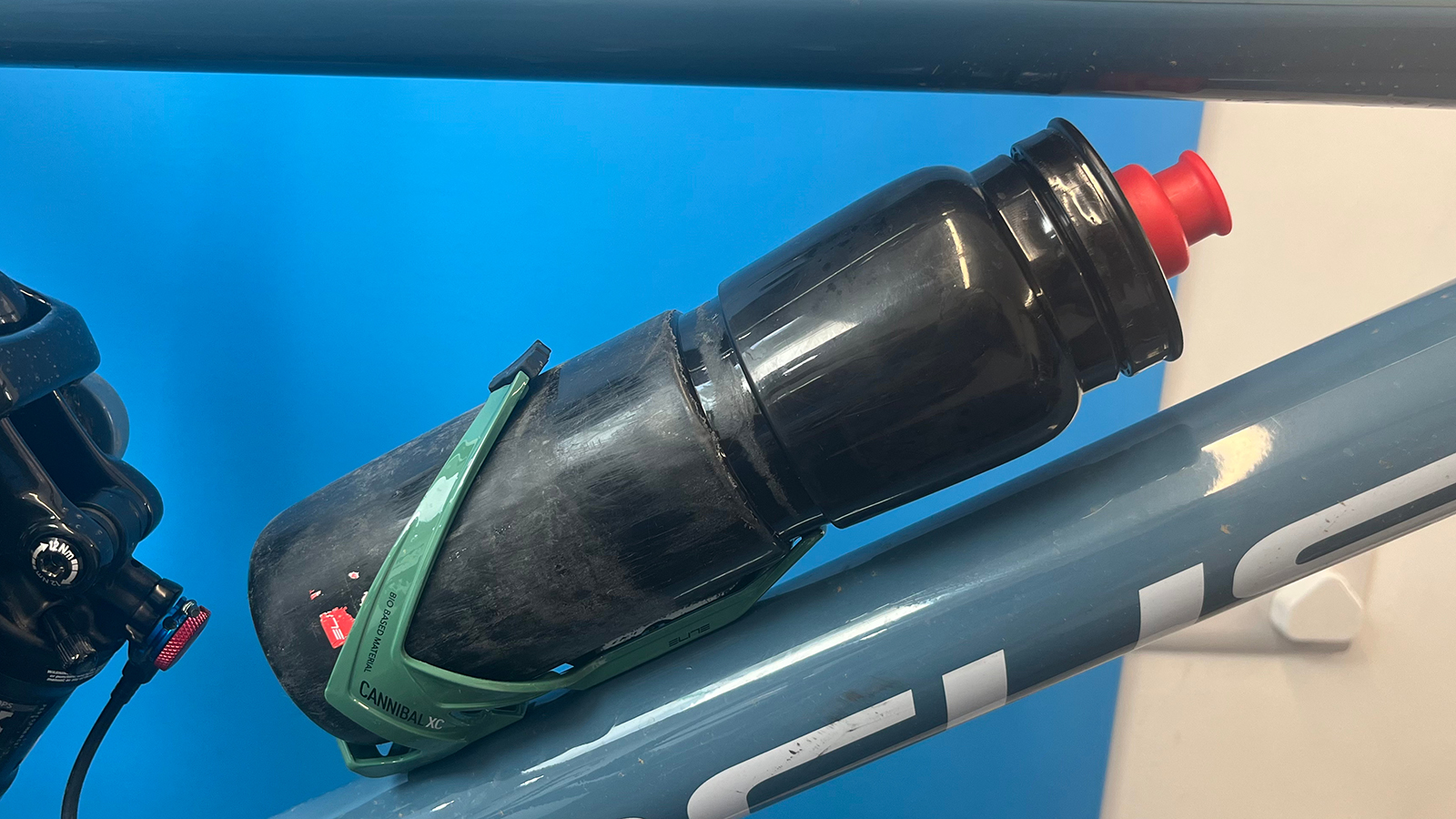
Verdict
The Cannibal XC Bio-Based performed flawlessly, working great on trail, XC, and gravel bikes alike. It did an admirable job of keeping my bottle on the bike but without being too tight, showed few signs of wear, has genuine eco credentials, and only costs £1 more than the standard version.
For more information, check out Elite-it.com.
Tech specs: Elite Cannibal XC Bio-Based
- Price: $24.99 / £15.99 / €17.99
- Diameter: Designed for 74mm bottles
- Height: 140mm
- Weight: 34g
- Color: Gloss Green
- Materials: 40% bio-based plastic, 60% fiberglass

Neal has been riding bikes of all persuasions for over 20 years and has had a go at racing most of them to a pretty average level across the board. From town center criteriums to the Megavalanche and pretty much everything in between. Neal has worked in the bicycle industry his entire working life, from starting out as a Saturday lad at the local bike shop to working for global brands in a variety of roles; he has built an in-depth knowledge and love of all things tech. Based in Sheffield, UK, he can be found riding the incredible local trails on a wide variety of bikes whenever he can
